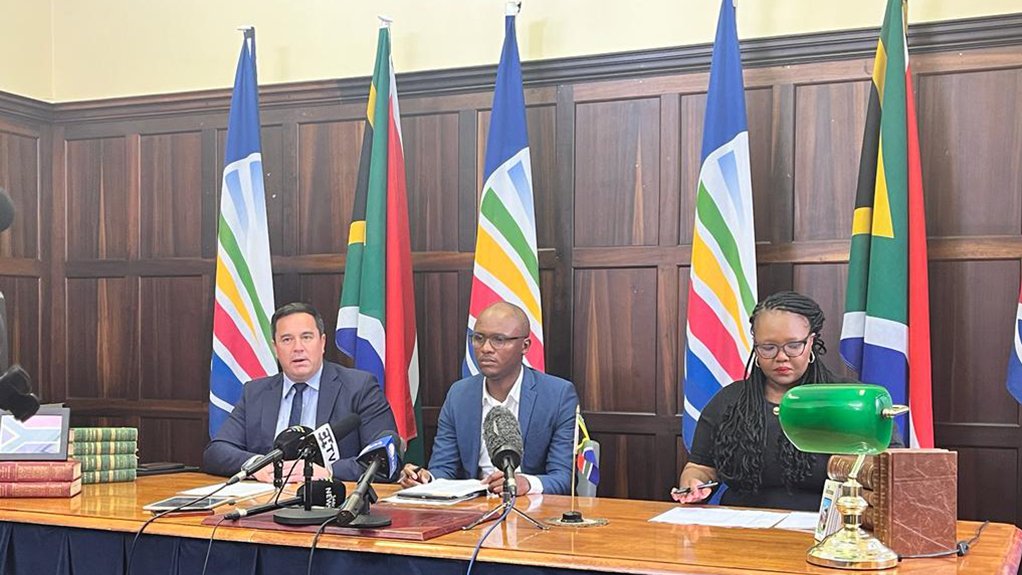South Africa’s biggest opposition party the Democratic Alliance (DA) has outlined what it calls “pro-active measures” to fix “messy” coalitions, as the country prepares for general elections in 2024.
In a press briefing on Thursday, attended by DA leader John Steenhuisen, party Chief Whip Siviwe Gwarube and spokesperson Solly Malatsi, the party denied that the ousting of Mpho Phalatse as City of Johannesburg mayor had prompted its call for measures to manage coalitions in the country.
Steenhuisen said the DA’s legislative agenda in the run-up to the 2024 elections was to prepare Parliament for the likelihood that, for the first time in 70 years, the era of one-party domination could come to an end.
He stressed the need for a legislative framework that was in keeping with the state of democracy and current South African reality.
Steenhuisen said any party contesting the elections in 2024 should support the DA’s proposal.
He explained that more consultations would be conducted with relevant stakeholders, including the electorate.
Outlining the party’s suggestions, Gwarube said there should be an electoral threshold for national, provincial and local governments.
This would require that a political party secure 1% or 2% of the overall vote to qualify for seats in a legislature or council.
The party also wants formal coalition agreements in place.
“There is currently no legislation that regulates coalitions or that stipulates what must be included in a coalition agreement to make it valid. There is also no oversight body or institution which holds and publishes these agreements. A coalition agreement is currently merely a document of goodwill between parties, with no consequences for breaching it,” Gwarube pointed out.
The DA suggested the establishment of an independent Registrar of Political Parties for public accountability in coalition governments.
Gwarube said South Africa could learn from Kenya, where political parties who negotiate to enter into a coalition are required by law to deposit their written political agreement with Kenya’s registrar of political parties.
She explained that the registrar could be a politically independent individual, such as a retired judge.
Meanwhile, the DA also wanted to extend the time period for the election of mayors from the current 14 days from the declaration of the election result.
It says this would give parties sufficient time to negotiate functional, binding coalition agreements.
The DA also believed that there was a need to limit the frequency of motions of no confidence.
It says setting a limit will give the governing coalition an opportunity to govern without the “constant distraction and threat of being removed”.
EMAIL THIS ARTICLE SAVE THIS ARTICLE ARTICLE ENQUIRY
To subscribe email subscriptions@creamermedia.co.za or click here
To advertise email advertising@creamermedia.co.za or click here











